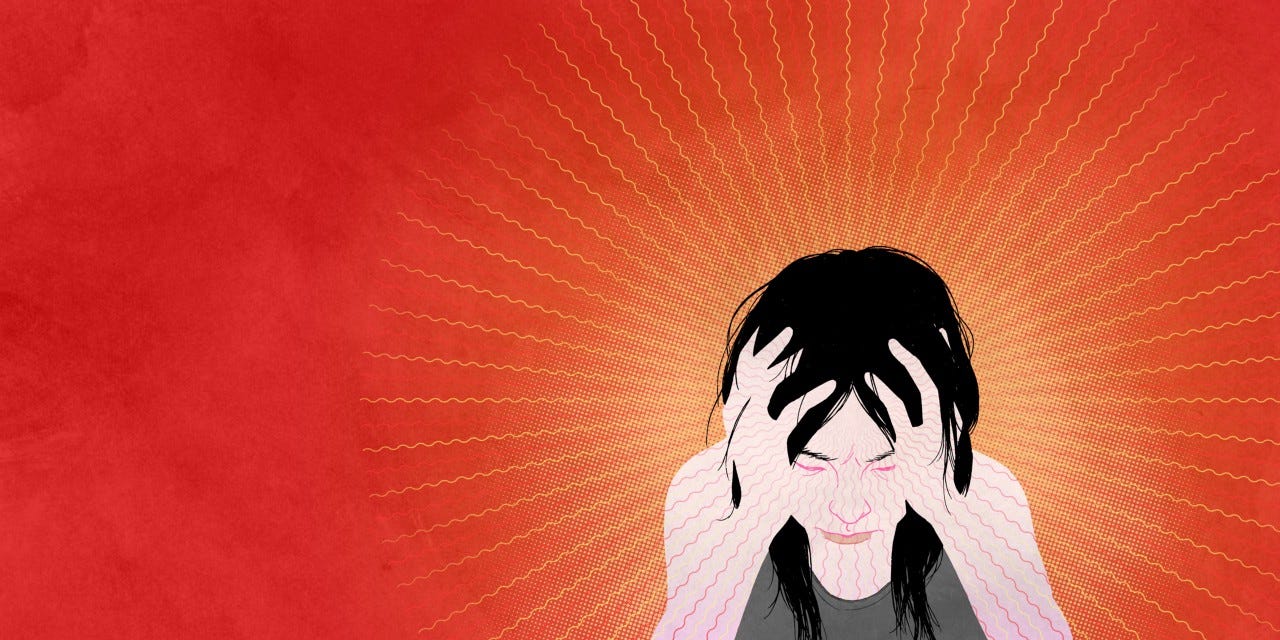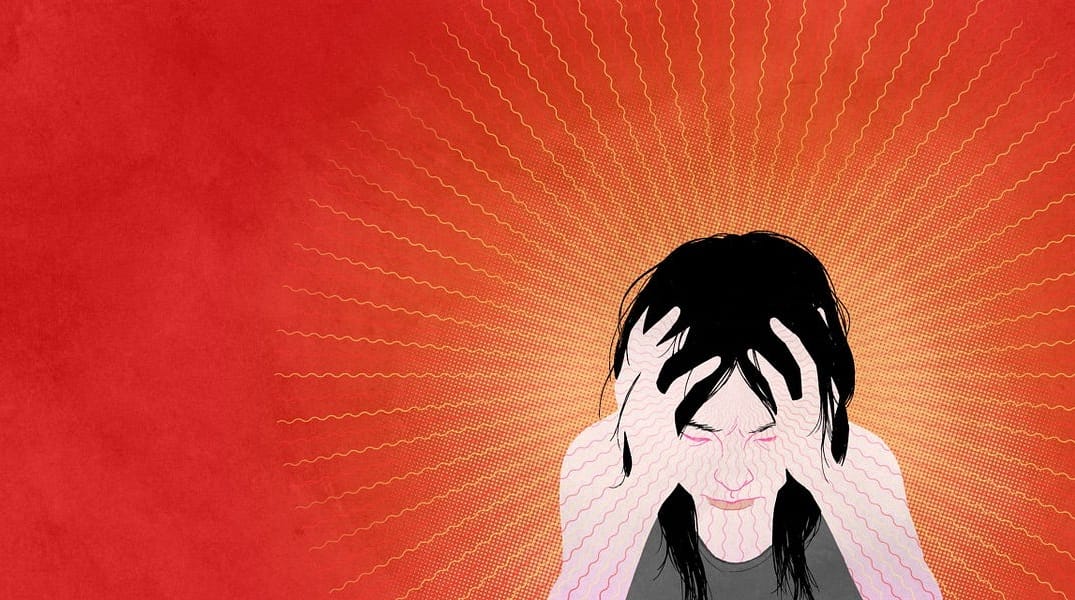
What do you do with an anxiety disorder during a global pandemic? That sounds like a weird riddle but less clever. The answer, for me, is: Go to sleep and wake up, watch more TV shows than you ever have, and FaceTime anyone you’ve ever been friends with.
It isn’t glamorous or fun — but it also isn’t especially difficult.
I realize how callous that sounds, but hear me out. It isn’t that I enjoy uncertainty or don’t have any people or places I love and miss. It’s because I already regularly combed through thick files of anxious thoughts most nights before bed, and some mornings, and if I’m really lacking time, some afternoons, too, Covid-19 or not.
Sign up for The Bold Italic newsletter to get the best content about life in the Bay Area in your inbox every week. What could go wrong?
Facing my anxiety directly now — at a time when many people are having these anxious thoughts for the first time, is almost, dementedly, comforting. When you have an anxiety disorder and a tragedy occurs, people rise to meet you in that place you usually reside. And so waking up to scary news or uncertainty is, yes, weird and unsettling, but it isn’t far from where I usually dwell. The pandemic almost helps justify my emotions — giving my anxiety something tangible to focus on, and the fact that others are feeling it too makes me feel less lonely in it.
I’ve been practicing the art of “what if” — now central to everyone’s being — for most of my life. And after 10,000 hours spent on a specific thing, Malcolm Gladwell deems you an expert.
My everyday anxiety disorder centers around abandonment and people I love dying, prompted by my younger brother’s struggle with brain cancer. This showed me in the most devastating way that bad things can happen to those who you love. Even if they’re young. Even if they’re healthy. Just by chance.
Since then, it’s a fear I’ve faced almost daily. When I can’t get ahold of my partner, I assume she’s dead. When I have a bad headache, I assume I have brain cancer. I think about the people I’m closest to dying all the time. Sometimes I’m so sure that I’m dying when I feel “weird” that I imagine who the hospital will contact first when I lose consciousness.
One aspect of life during Covid is that many of my coping mechanisms are no longer available to me. Planning, which is a tool I use to have a sense of “control” in my life, along with connecting with friends in person and sweating my little heart out at hard workout classes, aren’t options right now. So I’ve had to cope by slowing down. By basking in the simplicity of walking and cooking and phone calls.
Things were going to be okay. Even if I had to work from my studio apartment for months, things would be okay as long as I didn’t lose my job.
And then I lost my job when my company laid off nearly 20% of its employees.
After six years of working at the same company, my inbox now feels a little like a phantom limb — oh, I should check it? Oh no, it’s been removed. Did I forget about that project? Oh, it doesn’t exist for me anymore. But I didn’t get to say goodbye to my co-workers or office? Oh, it’s all gone. All of it. This is how it is.
It’s the most unsatisfying breakup I’ve ever had.
Therapy is another coping strategy that has changed. I FaceTime my therapist from the car each week, a space that allows for privacy but doesn’t require a mask. It’s odd to go from sitting across from her on a plush purple couch in a building on Market Street to calling her while holding my phone up from the front passenger side of an unmoving vehicle.
During week nine of sheltering in place, it simultaneously feels like it’s been much longer and shorter than it sounds. I’ve taken apart my bed in my studio apartment to have more “space” so that 70% of my home isn’t “bed.” My partner and I drag the mattress to the middle of the room each night so that we feel like we’ve just moved in, and it’s a better way to live than walking around a bed all day like a squishy house guest who has overstayed their welcome.
I haven’t done much of anything during this time and I’ve heard that’s okay. The internet has told me that when we experience trauma our needs revert to their most basic level of existence: food, sleep, water.
I consider the sabbatical of a similar length I took in Berlin last summer and what I fit into that time frame. Nights out with my best friend, days spent writing and exploring — naked lake sunbathing, sex, consuming beers along the canal, staying up until the sun came up, frequenting the gym every morning before it got too hot, writing classes, and all the sausages I consumed.
Compared to then, I have done very little. Staying busy is no longer an option to cope, so I’ve slowed down, and actually enjoy it. Cooking, reading, repotting plants.
One of the more specific tools I typically use to manage my fear and anxiety that’s no longer valid: worksheets doled out by my therapist for me to workshop unreasonable thoughts by using facts to transform them into more realistic thoughts. But we’ve scrapped that for now — in the days of Covid-19, using logic to counterbalance my anxious thoughts doesn’t work.
For once, my anxious thoughts are reasonable—understandable. For once, my anxiety makes sense.
Editor’s note: If you or someone you know is struggling with mental health, contact a trained mental health professional for help. For serious circumstances of life-threatening depression, please contact the National Suicide Prevention Lifeline (800–273–8255).







